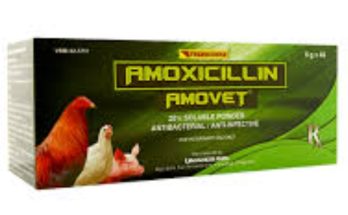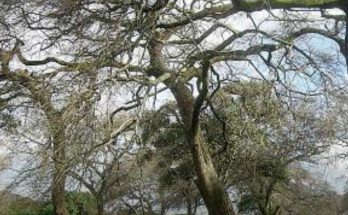
By Own Correspondent
AWAFAR-N members changing gender stereotypes Women are often perceived as inferior upon trying to venture into an enterprise. Almost all enterprises are said to be male dominated particularly those that are capital intensive.
It is the 21st century now where the visor has been changed from the black and white pictures to see things in colour, 4K resolution.
It is through organizations such as the African Women in Livestock Farming Resources and Agribusiness Network (AWAFAR) in Zimbabwe which have helped change the mindset or nurture the mindset that they are equally able to tackle the so-called hard enterprises alongside realizing that when it comes to large enterprises, challenges befall anyone.
AWAFAR-N Zimbabwe was established in 2018 with the goal to assist women in various issues such as capacitation, fundraising amongst other things.

The chairperson of AWAFAR Ms Jackie Gowe, an avid, established beekeeper explains their network is very woman friendly as they discuss solutions on various issues.
“Awafar is very important to us because it’s bringing like-mindedness women together and we are looking for ways to help each other. So where someone has been weak, you find a strong person, so you have another woman to lean upon.
“We do simple things like our meetings. We allow mothers with babies to come with their babies, you know. So grandmothers with grandchildren, they can come with the kids.
“So grandmothers with grandchildren, they can come with the kids. So we are very informal and we want to help everyone regardless of their situation,” she says.
In the meetings, women share challenges they face and come up with solutions to circumvent them. Some of the ideas came from the African Union InterAfrica Bureau on Animal Resources (AU-IBAR).
“The main challenge is financial, as you know. Most banks, when you approach, they want some form of security, and most of the AWAFAR ladies do not own properties outright. So they have that number one challenge in terms of collateral security.
“But however, having said that, AU IBAR gave us some financial literacy and we’ve learnt that we can also do crowdfunding amongst ourselves.
“So we have started in a small way, so we are putting funds together for a gold project where we are investing like US$50 each every month and once we have the lump sum we want to invest into some good breeds of goats we can sell together,” Ms Gowe says.
Apiculture, bee farming also considered a male business for it requires the valiancy of enduring bee stings, Ms Gowe ventured into this business to earn herself the title Queen Bee.
“They actually call me Queen Bee now because I’ve entered into a male-dominated industry. And yes, there’s been challenges where men were resisting us being in their arena, right?
“And also the challenges of them putting hives up in trees, we came in and said, no, let’s put them at one meter level where we can also harvest,” she says. “Last night some woman called me to help with her hives and I got stung because I didn’t don the suit properly as it seemed an emergency.”
Sitting on a 12 Hectare piece of land, this reporter found flipping the switch to the clear colour resolution being Dr Eunah Makoni, director at Kintyre Smart Dairy Farm who says challenges do not discriminate whether one is male or female. She is an AWAFAR member.
“Okay, the challenges that I face, you know, for me really, I think I don’t want to apportion challenges to say like, you know, as a woman or as a man, a challenge is a challenge. So the challenges that I face are the same challenges that men face in our industry,” she says.
The challenges the livestock business face as many, male or female alike, would do ‘a refrain’, is that of the high cost of feed.
“I think the biggest one being the cost of feed. It’s very, very costly. And then we also have other inputs like fuel, like fuel and electricity, very costly.
“But you know I can also maybe looking at other women indeed I can appreciate the challenges because like you know when it comes to cash flow one really has to know how to manage their cash flow and they also have to maybe have mechanisms in place to just backstop that cash flow because like you know our cows just need to eat every day 24-7.
“So one really needs to have that one sorted, otherwise there will be serious problems,”Dr Makoni says.
For Dr Makoni, she has always been unconventional in her thinking in that she did not want to follow the mass mind of venturing into small ruminants.
“I think for me when I thought of the livestock I had to rear, discussing amongst my friends. They were talking poultry, goat production, mainly those two and I thought I wanted to do it differently.
“I wanted to do dairy because other than working in the dairy sector since 1996, I was more, more, like you know passionate about cows than the small ruminants So I went for daily just like any venture is what it’s challenges, but like you know I am proof that women can do it is doable like you know it’s the investment,” she says.
Her experience in Kenya alongside her supportive husband Dr Nathaniel Makoni taught them one doesn’t need large tracts of land to do diary farming.
“Well, like, you know, when I tell my friends here in Zimbabwe that I’m doing daily on a 11.46 hectares, they laugh. They think it’s not doable. Because we are, you know, we are spoiled for land. We have very large tracts of land.
“So people are looking maybe at land areas of a hundred plus hectares to maybe do daily. But like I said, for me, because of my Kenya experience, I’ve seen people doing daily on less than half a hectare. And they’ve done so well with production of even up to about a hundred or so litres per day, even more in some instances,” she says.

Inasmuch as Mrs Susan Chidamahiya yearns to get a larger piece of land, she is testament that one does not need a larger piece of land for diary farming.
Standing at a kraal, donning a black dress one of her beasts finds it appetizing attempting to chew it off from her.
This happened at her 4 ha plot situated about 21 KM from Harare, where she rears about 35 beasts. While the business may be challenging, having sleepless nights looking after the Friesland Holstein and Jersey breeds of cattle, she manages to process her milk to cultured milk.
“This is not for the faint hearted. It looks glorious when you are talking about the dollars. But its hard work. When you look at diary, comparing them with beef cattle. They are like broilers which need so much care. You have to be on your feet daily. We have a first aid kit,” Mrs Chidamahiya says.
Being accountant by profession, she left the job, finding it more rewarding and has learned a thing or two such has having a first aid kit for the cattle on standby and having an on-call veterinary.
“Any minute the guy will just tell you they are milking Walla, its not eating. So you don’t sleep. Sometimes, it’s calving and it’s difficult. My husband has to set an alarm. He will be here every hour. We have had two caesarean sections.
“And when you have a new calf, you have to take great care of it. So it’s so involving and you have no weekend. From 1 January to 31 December. It’s more involving than poultry and beef cattle. I am passionate about this,” she said.



